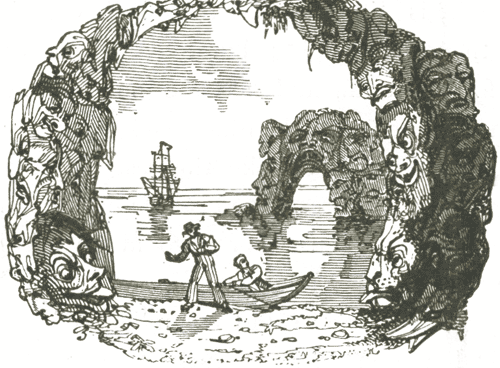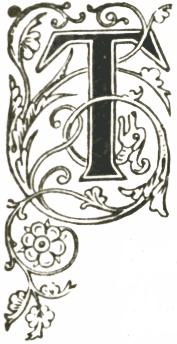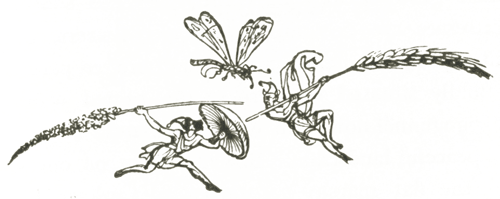The Hidden Treasure - Fairy Legends of Ireland


RAVELLERS go to Leinster to see Dublin and the Dargle; to Ulster to see the Giant's Causeway, and, perhaps, to do penance at Lough Dearg; to Munster, to see Killarney, the butter-buying city of Cork, and half a dozen other fine things; but whoever thinks of the fourth province? whoever thinks of going
"Westward, where Dick Martin ruled
The houseless wilds of Cunnemara?"
The Ulster-man's ancient denunciation, "To hell or to Connaught," has possibly led to the supposition that this is a sort of infernal place above ground—a kind of terrestrial Pandemonium; in short, that Connaught is little better than hell, or hell little worse than Connaught; but let any one only go there for a month, and as the natives say, "I'll warrant he'll soon see the differ, and learn to understand that it is mighty like the rest o' green Erin, only something poorer;" and yet it might be thought that in this particular "worse would be needless;" but so it is.
"My gracious me," said the landlady of the inn at Sligo, "I wonder a gentleman of your teest and curosity would think of leaving Ireland without making a tower (tour) of Connaught, if it was nothing more than spending a day at Hazlewood, and up the lake, and on to the ould abbey at Friarstown and the castle at Dromahair."
Polly M'Bride, my kind hostess, might not in this remonstrance have been altogether disinterested, but her advice prevailed, and the dawn of the following morning found me in a boat on the unruffled surface of Lough Gill. Arrived at the head of that splendid sheet of water, covered with rich and wooded islands, with their ruined buildings, and bounded by towering mountains, noble plantations, grassy slopes, and precipitous rocks, which give beauty, and, in some places, sublimity to its shores, I proceeded at once up the wide river which forms its principal tributary. The "ould abbey" is chiefly remarkable for having been built at a period nearer to the Reformation than any other ecclesiastical edifice of the same class. Full within view of it, and at the distance of half a mile, stands the shattered remnant of Breffni's princely hall. I strode forward with the enthusiasm of an antiquary, and the high beating heart of a patriotic Irishman. I felt myself on classic ground, immortalized by the lays of Swift and of Moore. I pushed my way into the hallowed precincts of the grand and venerable edifice. I entered its chambers, and, oh my countrymen, I found them converted into the domicile of pigs, cows, and poultry! But the exterior of "O'Rourke's old hall," grey, frowning, and ivy-covered, is well enough; it stands on a beetling precipice, round which a noble river wheels its course. The opposite bank is a very steep ascent, thickly wooded, and rising to a height of at least seventy feet, and for a quarter of a mile this beautiful copse follows the course of the river.
The first individual I encountered was an old cowherd! nor was I unfortunate in my cicerone, for he assured me there were plenty of old stories about strange things that used to be in the place; "but," continued he, "for my own share, I never met anything worse nor myself. If it bees ould stories that your honour's after, the story about Linn-na-Payshtha and Poul-maw-Gullyawn is the only thing about this place that's worth one jack-straw. Does your honour see that great big black hole in the river yonder below?" He pointed my attention to a part of the river about fifty yards from the old hall, where a long island occupied the centre of the wide current, the water at one side running shallow, and at the other assuming every appearance of unfathomable depth. The spacious pool, dark and still, wore a deathlike quietude of surface. It looked as if the speckled trout would shun its murky precincts—as if even the daring pike would shrink from so gloomy a dwelling-place. "That's Linn-na-Payshtha, sir," resumed my guide, "and Poul-maw-Gullyawn is just the very moral of it, only that it's round, and not in a river, but standing out in the middle of a green field, about a short quarter of a mile from this. Well, 'tis as good as fourscore years—I often hard, my father, God be merciful to him! tell the story—since Manus O'Rourke, a great buckeen, a cock-fighting, drinking blackguard that was long ago, went to sleep one night and had a dream about Linn-na-Payshtha. This Manus, the dirty spalpeen, there was no ho with him; he thought to ride rough-shod over his betters through the whole country, though he was not one of the real stock of the O'Rourkes. Well, this fellow had a dream, that if he dived in Linn-na-Payshtha at twelve o'clock of a Hollow-eve night, he'd find more gold than would make a man of him and his wife while grass grew or water ran. The next night he had the same dream, and sure enough if he had it the second night, it came to him the third in the same form. Manus, well becomes him, never told mankind or womankind, but swore to himself, by all the books that ever were shut or open, that anyhow he would go to the bottom of the big hole. What did he care for the Payshtha-more that was lying there to keep guard on the gold and silver of the old ancient family that was buried in the wars, packed up in the brewing-pan? Sure he was as good an O'Rourke as the best of them, taking care to forget that his grandmother's father was a cowboy to the Earl O'Donnel. At last Hollow-eve came, and sly and silent Master Manus creeps to bed early, and just at midnight steals down to the river-side. When he came to the bank his mind misgave him, and he wheeled up to Frank M'Clure's—the old Frank that was then at that time—and got a bottle of whisky, and took it with him, and 'tis unknown how much of it he drank. He walked across to the island, and down he went gallantly to the bottom like a stone. Sure enough the Payshtha was there afore him, lying like a great big conger eel, seven yards long, and as thick as a bull in the body, with a mane upon his neck like a horse. The Payshtha-more reared himself up, and looking at the poor man as if he'd eat him, says he, in good English,—
" 'Arrah, then, Manus,' says he, 'what brought you here? It would have been better for you to have blown your brains out at once with a pistol, and have made a quiet end of yourself, than to have come down here for me to deal with you.'
" 'Oh, plase your honour,' says Manus, 'I beg my life:' and there he stood shaking like a clog in a wet sack.
" 'Well, as you have some blood of the O'Rourkes in you, I forgive you this once; but by this, and by that, if ever I see you, or any one belonging to you, coming about this place again, I'll hang a quarter of you on every tree in the wood. Go home,' says the Payshtha, 'go home, Manus,' says he; 'and if you can't make better use of your time, get drunk, but don't come here bothering me. Yet, stop! since you are here, and have ventured to come, I'll show you something that you'll remember till you go to your grave, and ever after, while you live.'
"With that, my dear, he opens an iron door in the bed of the river, and never the drop of water ran into it; and there Manus sees a long dry cave, or underground cellar like, and the Physhtha drags him in and shuts the door. It wasn't long before the baste began to get smaller, and smaller, and smaller; and at last he grew as little as a taughn of twelve years old; and there he was, a brownish little man, about four feet high."
" 'Plase your honour,' says Manus, 'if I might make so bold, maybe you are one of the good people?'
" 'Maybe I am, and maybe I am not; but, anyhow, all you have to understand is this, that I'm bound to look after the Thiernas (lords) of Breffni, and take care of them through every generation; and that my present business is to watch this cave, and what's in it, till the old stock is reigning over this country once more.'
" 'Maybe you are a sort of a banshee?'
" 'I am not, you fool,' said the little man. 'The banshee is a woman. My business is to live in the form you first saw me in, guarding this spot. And now hold your tongue, and iook about you.'
"Manus rubbed his eyes, and looked right and left, before and behind; and there was the vessels of gold and the vessels of silver, the dishes, and the plates, and the cups, and the punchbowls, and the tankards; there was the golden mether, too, that every Thierna at his wedding used to drink out of to the kerne in real usquebaugh. There was all the money that ever was saved in the family since they got a grant of this manor, in the days of the Firbolgs, down to the time of their outer ruination. He then brought Manus on with him to where there was arms for three hundred men; and the sword set with diamonds and the golden helmet of the O'Rourke; and he showed him the staff made out of an elephant's tooth, and set with rubies and gold, that the Thierna used to hold while ne sat in his great hall, giving justice and the laws of the Brehons to all his clan. The first room in the cave, ye see, had the money and the plate, the second room had the arms, and the third had the books, papers, parchments, title-deeds, wills, and everything else of the sort belonging to the family.
" 'And now, Manus,' says the little man, 'ye seen the whole o' this, and go your ways; but never come to this place any more or allow any one else. I must keep watch and ward till the Sassanach is druv out of Ireland, and the Thiernas o' Breffni in their glory again.' The little man then stopped for a while and looked up in Manus's face, and says to him in a great passion, 'Arrah! bad luck to ye, Manus, why don't ye go about your business?'
" 'How can I?—sure you must show me the way out,' says Manus, making answer. The little man then pointed forward with his finger.
" 'Can't we go out the way we came?' says Manus.
" 'No, you must go out at the other end—that's the rule o' this place. Ye came in at Linn-na-Payshtha, and ye must go out at Poul-maw-Gullyawn; ye came down like a stone to the bottom of one hole, and ye must spring up like a cork to the top of the other.' With that the little man gave him one hoise, and all that Manus remembers was the roar of the water in his ears; and sure enough he was found the next morning, high and dry, fast asleep, with the empty bottle beside him, but far enough from the place he thought he landed, for it was just below yonder on the island that his wife found him. My father, God be merciful to him! heard Manus swear to every word of the story."

